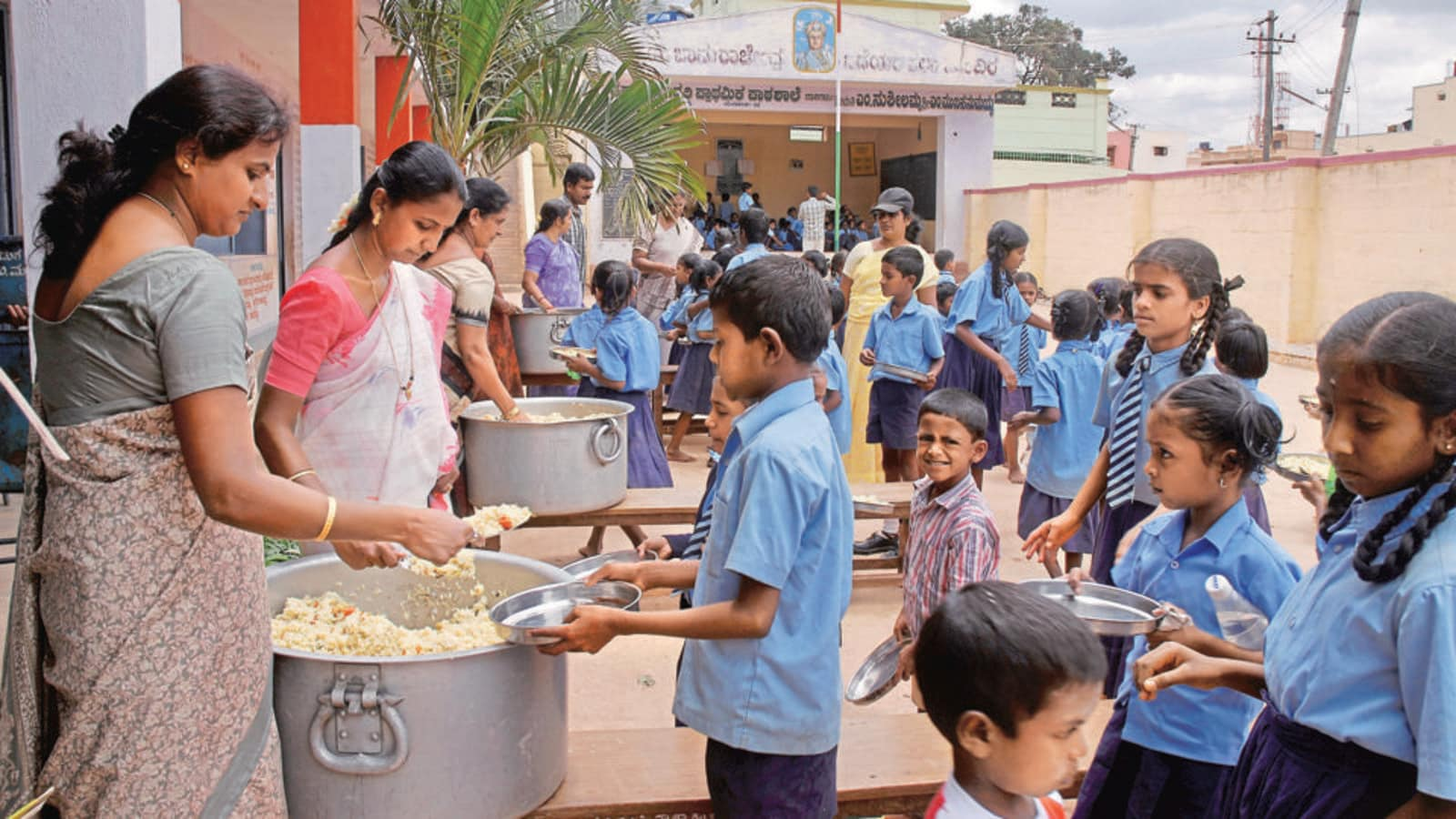Free Courses Sale ends Soon, Get It Now


Free Courses Sale ends Soon, Get It Now



Copyright infringement not intended
Context: The Union Government has updated nutritional criteria in its child food safety programmes.
Details
States' autonomy to alter food menu
National Food Security Act (NFSA) of 2013
Amended National Food Security Act (NFSA) Schedule II
Conclusion
Must Read Articles:
National Food Security Act (NFSA): https://www.iasgyan.in/daily-current-affairs/national-food-security-act-nfsa#:~:text=The%20Act%20provides%20for%20coverage,two%2Dthirds%20of%20the%20population.
PM POSHAN: https://www.iasgyan.in/daily-current-affairs/pm-poshan-scheme
|
PRACTICE QUESTION Q. How do you evaluate the impact of the Government's decision to modify the nutritional guidelines for school and Anganwadi meals? The new guidelines increase the quantity of calories and protein while also mandating the inclusion of micronutrients. What are the benefits and challenges of implementing these guidelines for children's health and education? |
© 2024 iasgyan. All right reserved